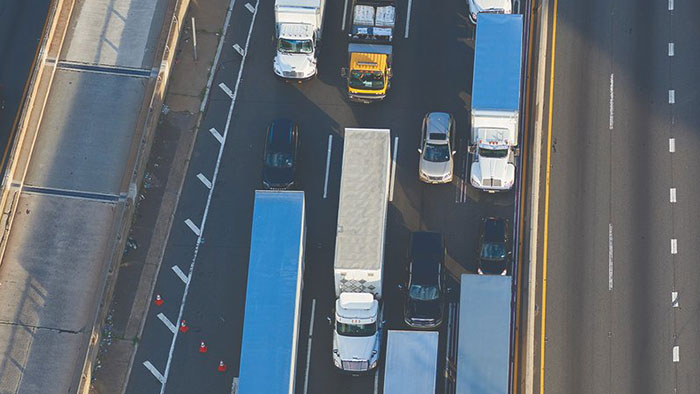Photo Courtesy of NYCEDC
FreightNYC, according to Mayor de Blasio, is the administration’s plan to overhaul the city’s aging freight distribution systems through investments to modernize maritime and rail assets and establish new distribution facilities, with the ultimate goals of creating nearly 5,000 good-paying jobs for New Yorkers and a more sustainable and resilient supply chain network.
By Forum Staff
The City is set to pour $100 million into a plan to overhaul the Big Apple’s aging freight-distribution systems through investments to modernize maritime and rail assets and establish new distribution facilities, with the ultimate goals of creating nearly 5,000 good-paying jobs for New Yorkers and a more sustainable and resilient supply chain network, the de Blasio administration announced on Monday.
“Freight NYC is one of the most ambitious re-imaginings of how 8.5 million New Yorkers – and the tens of millions more in our region – share, sell, and buy the goods that keep our economy thriving,” said Alicia Glen, deputy mayor for Housing and Economic Development. “It will modernize our shipping sector, strengthen our economy, and improve the air we breathe.”
According to the administration, Freight NYC leverages three strategies to modernize and strengthen the city’s freight-distribution industry:
Investing in Multimodal Infrastructure
Working with the Port Authority of NY & NJ, administration officials said the City will invest in marine terminals and barging operations, and support the modernization and expansion of rail lines and freight facilities, creating approximately 900 jobs. Highlights include: developing a barge terminal to serve the Hunts Point Food Distribution Center in the Bronx, allowing produce and other food products to reach Hunts Point by water, rather than by truck; constructing a barge terminal at the South Brooklyn Marine Terminal in Sunset Park to connect Brooklyn’s consumer base to the new barge network; and reactivating underutilized rail lines by constructing new transload facilities within the existing rights-of-way and new passing lanes to alleviate track congestion.
Creating New Freight Distribution Hubs
Through public-private partnerships, the City has said it will develop new distribution, warehousing, and transload facilities to meet increasing demand. This, according to officials, will help ensure the City can sustain the demands of its growing population, while creating secondary pathways to move goods in the event of adverse climate impact and other major disruptions. Highlights include: on July 20, the City Economic Development Corporation will release a request for proposal for a private partner to build an urban distribution center at the Brooklyn Army Terminal that is at least 500,000 square-feet, estimated to create 500 jobs in Sunset Park; and NYCEDC will release an RFP next week for a 4-acre site near John F. Kennedy International Airport to develop an air cargo and distribution facility that will help meet the needs of current businesses while ensuring the efficient flow of airport goods and maintaining JFK’s position as a leading international freight destination.
Promoting the Use of Clean Trucks
The City said it will encourage the deployment of cutting-edge and emission-free trucks on NYC streets for last-mile delivery. Highlights include: supporting the expansion of the City Department of Transportation’s Hunts Point Clean Trucks Program to other truck hubs and Industrial Business Zones. The program offers a rebate to applicants that replace, retrofit, or retire older, heavy-polluting diesel trucks; supporting the development of clean fuel infrastructure in freight hubs, including sites for compressed natural gas and electric charging, while promoting truck safety measures to help meet DOT’s Vision Zero goals; and piloting initiatives for tenants in City-owned properties to green their own supply chains through logistics consolidation, carbon-neutral shipping, and use of clean vehicles.

